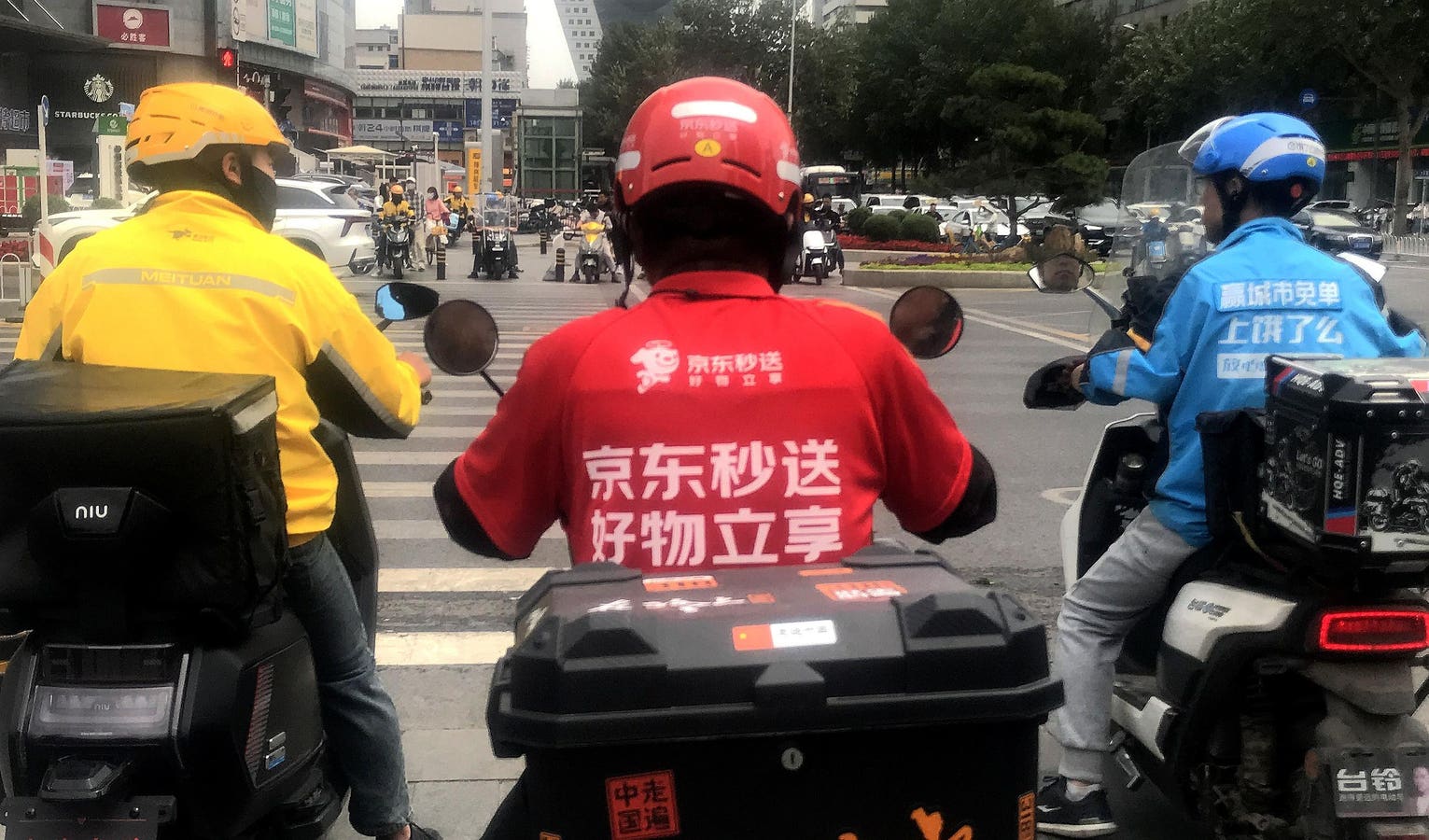Food deliverymen from Meituan, JD.com and Alibaba’s Ele.me jockey for position on a street in Shenyang, Liaoning Province, in June.
VCG via Getty Images
Wang Xing, founder of Chinese food delivery leader Meituan, saw his wealth plunge $1.1 billion during morning trading Thursday as his company’s Hong Kong-listed shares sank as much as 11.3% after it announced a 97% plummet in profit the day before.
The 46-year-old chairman and CEO still has a fortune of $9 billion largely based on a company stake, according to Forbes estimates. But he faces a grim outlook. As e-commerce giants Alibaba and JD.com continue to invest heavily in food-delivery to attract new users, Meituan is being forced to spend billions of yuan each quarter to defend its market position and match competitors’ spending in meal coupons and user subsidies.
“Investors are very worried that Meituan can’t keep up any more if Alibaba continues to invest in food delivery, ” Eric Wen, head of research at Hong Kong-based research firm Blue Lotus Capital Advisors, says by WeChat.
The subsidy war has taken a big toll. In the second quarter that ended in June, Meituan’s net profit plummeted 97% year-on-year to 365.3 million yuan ($51.1 million), even though sales rose 11.7% to 91.8 billion yuan from the same period a year earlier.
During a Wednesday analyst call, billionaire Wang said the company has faced intense competition before and Meituan will defend itself. Chief Financial Officer Chen Shaohui said its core local commerce business, which largely consists of food delivery, will incur “substantial” losses in the current quarter due to strategic spending.
Based on reductions in the companies’ respective cash positions, Blue Lotus’s Wen estimates that Alibaba, JD.com and Meituan collectively burned through about 2 billion yuan on a quarterly basis to offer customers subsidies and discounted meals. Wen thinks that the food-delivery war will last through the year as the battle to attract new users continues. It may subside early next year if the competitors choose to direct more investment to areas such as AI, he says.
But Ke Yan, Singapore-based head of research at DZT Research, is more pessimistic. The cut-throat competition in Chinese food delivery won’t diminish for at least another 12 months, he says via WeChat. Meituan’s profit will continue to be under pressure as it has to spend on both meal subsidies and to expand internationally, says Ke.
The local services giant has launched its overseas food-delivery service Keeta in markets outside mainland China. In Hong Kong, it elbowed out rival Deliveroo, which exited the Asian financial hub in March. Generous user subsidies have made Keeta one of the most popular food-delivery services in the city since its launch in 2023. In Saudi Arabia, Keeta had expanded to 20 cities by the end of July, according to Meituan’s second-quarter results.
“International expansion doesn’t make money in one day,” Ke says. “It takes at least a year or two before this business can churn out a profit.”








